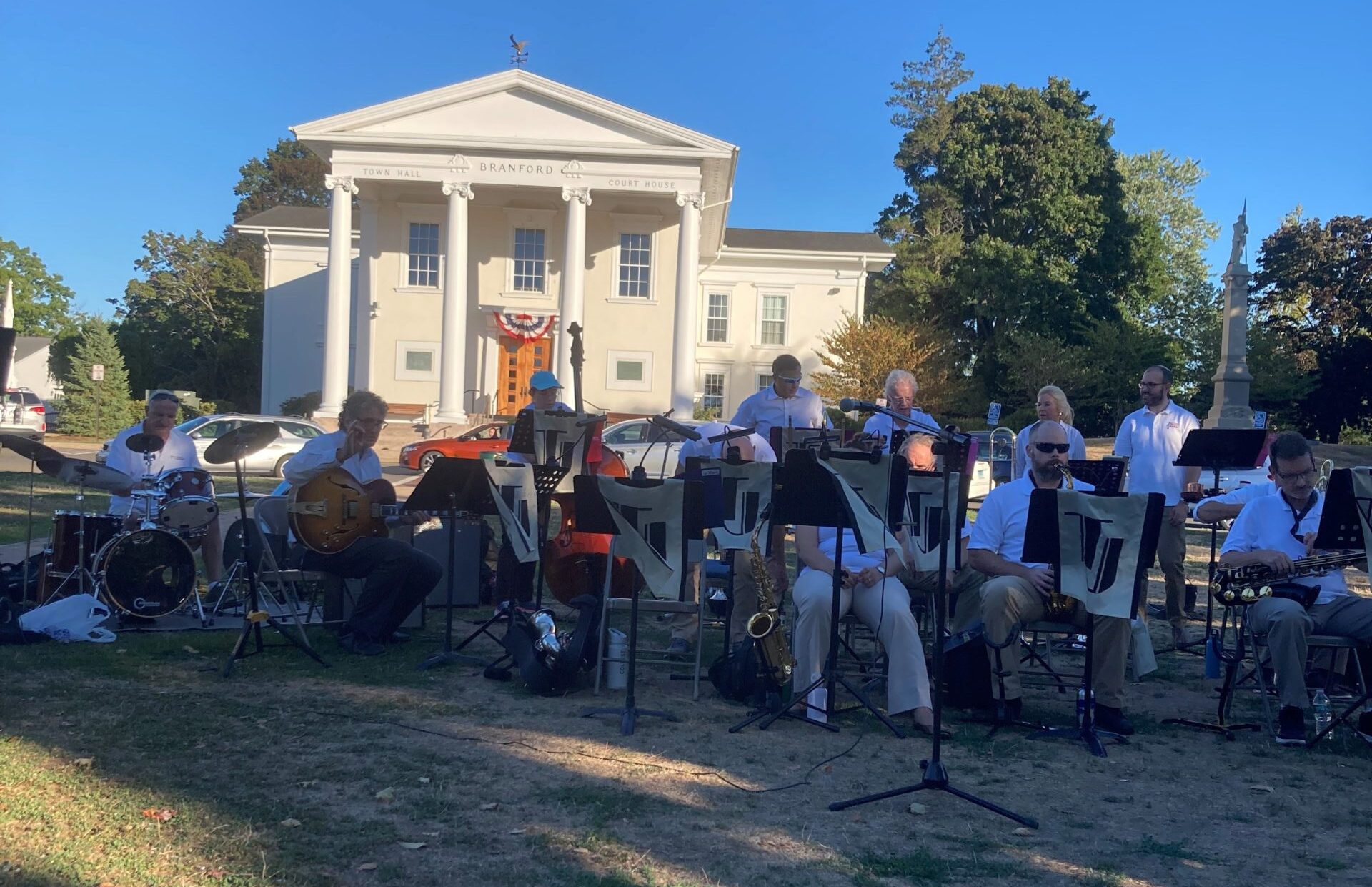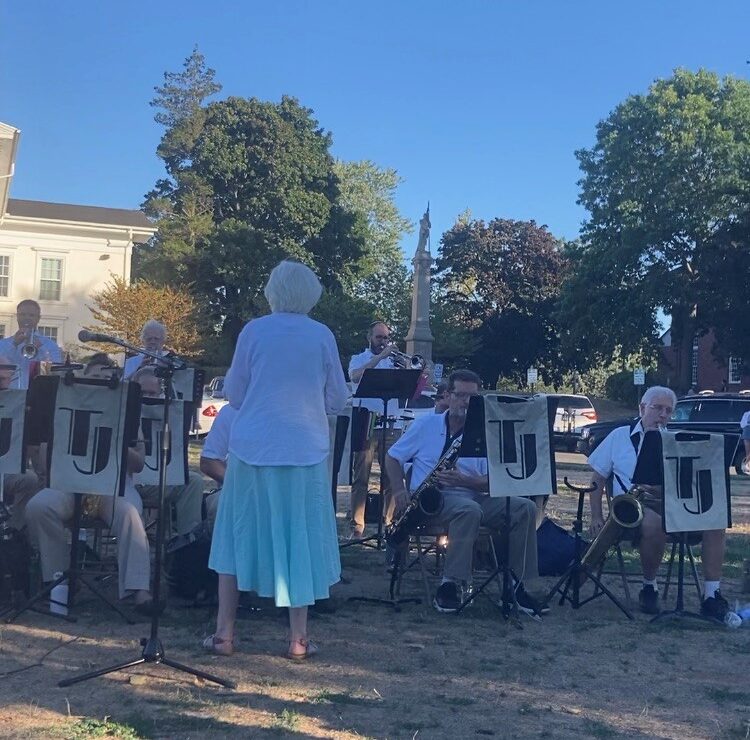Where words fail, music speaks.
-Hans Christian Andersen
A friend of ours. Marlene, invited Waldo and me to go down to Connecticut to enjoy an outdoor concert. We readily agreed and drove the two hours from home to the Branford town green. The band, about twenty instruments, including saxophones, trumpets, cornets, trombones, an electric guitar, a keyboard, a bass and drums, were setting up as we arrived. I walked Waldo around the green, so he could do his business before the music started, and then we settled down on some portable chairs that Marlene brought. The show began and Waldo lay down quietly in front of me — except for a few times when he dug at, and tried to eat, some weeds in the grass.
The band played old, well known music, including Glenn Miller’s “In the Mood” and “Summertime” from Porgy and Bess. They also had a very good tenor singing along in some of the tunes and, all in all, it was a very pleasant experience. I really enjoy concerts en plein air and, although he didn’t seem to like it as much as Marlene and I did, Waldo tolerated it well. It makes me wonder, why do I enjoy music? Why does anyone like music? Why does it exist?
That’s a question that fascinated me for a long time. As far as I know, the enjoyment of music, in some form, is universal among all human cultures. That suggests to me that there must have been, at some point in our evolution, a survival advantage that music provided for the species. In the past, I just couldn’t imagine what it could be. How could music help primitive man, or his ancestors, survive? Maybe it served as a mechanism that brought people together and that helped them survive because it reinforced their tendency to congregate and socialize? Living in larger groups clearly made it easier for humans to get along in the world, but that begs the question, why does music cause people to come together? For years, I couldn’t find a satisfactory answer.
Then I came across a book that piqued my interest called, “Animals in Translation,” by Temple Grandin, a famous autistic woman. In the book, she talks about animal behavior and its whys and wherefores. At one point, she mentions a theory, thrown about by some researchers, that made sense to me. There are some animals, like the prairie dog, that communicate using a singing type of voice. Their songs can be very detailed. For example, they can communicate not only that a predator is approaching the community, but also what kind of predator, where it’s coming from, in what direction, how fast and, if they have confronted the beast before, the particular animal that’s threatening the community. They haven’t evolved the ability to use language the way we do, but they communicate, just the same, using “music,” and that helps them survive in this dangerous world.
Now, ontogeny recapitulates phylogeny, which is just a fancy way to say that during an individual’s growth in utero, human beings go through the same steps of development that our ancestors went through in evolution. Human fetuses go through a fish-like stage, an amphibian-like stage and so on. Which makes good sense because as our ancestors mutated and evolved, new genes would be added onto old genes, much of the time, without throwing away the old genes. So, maybe, just maybe, our human ancestors, at some point, evolved the ability, like prairie dogs, to use music to communicate and only afterward evolved language centers in their brains that allowed them to speak amongst themselves the way we do now. If so, then we inherited the music centers in our brains and can still communicate using music. Those centers then evolved further to give us our love of making and listening to music.
Clearly, music does communicate something to us, at least most of us. And what it communicates cannot, in large part, be adequately expressed in the words, syntax and grammar that our language centers use. Music, I think, communicates something more subliminal, emotional even, than what our language communicates. Something that enhances, deepens and broadens our ability to share the human experience with one another. Maybe that, at this point in our evolution, doesn’t enhance our ability to survive, but, man, it certainly beautifies it.
I know that Waldo has a language center in his brain because he responds appropriately to the words and expressions I’ve taught him. It’s well known, too, that animals respond well to some kinds of music – music soothes the savage beast. But Waldo must have a “music center” in his brain because I can communicate with him by using different whistle tunes and he responds appropriately to them. However, if his behavior is any guide, it would be a real stretch to suggest that he enjoys the music I do. If he enjoys any at all, it doesn’t seem to be “In the Mood” or “Summertime.” But, just the same, he lays quietly next to me and allows me to enjoy the band.
Waldo must have also inherited a “tolerance to human idiosyncrasies” center in his brain.



